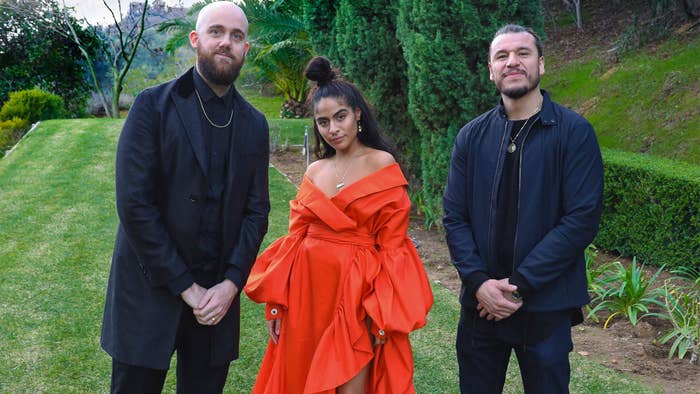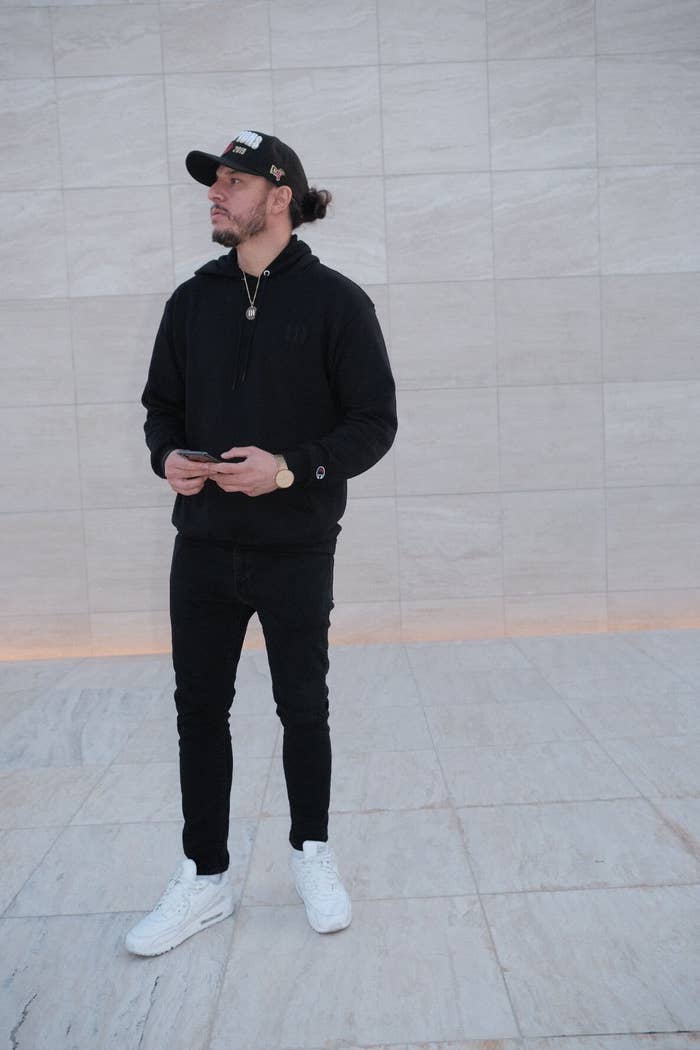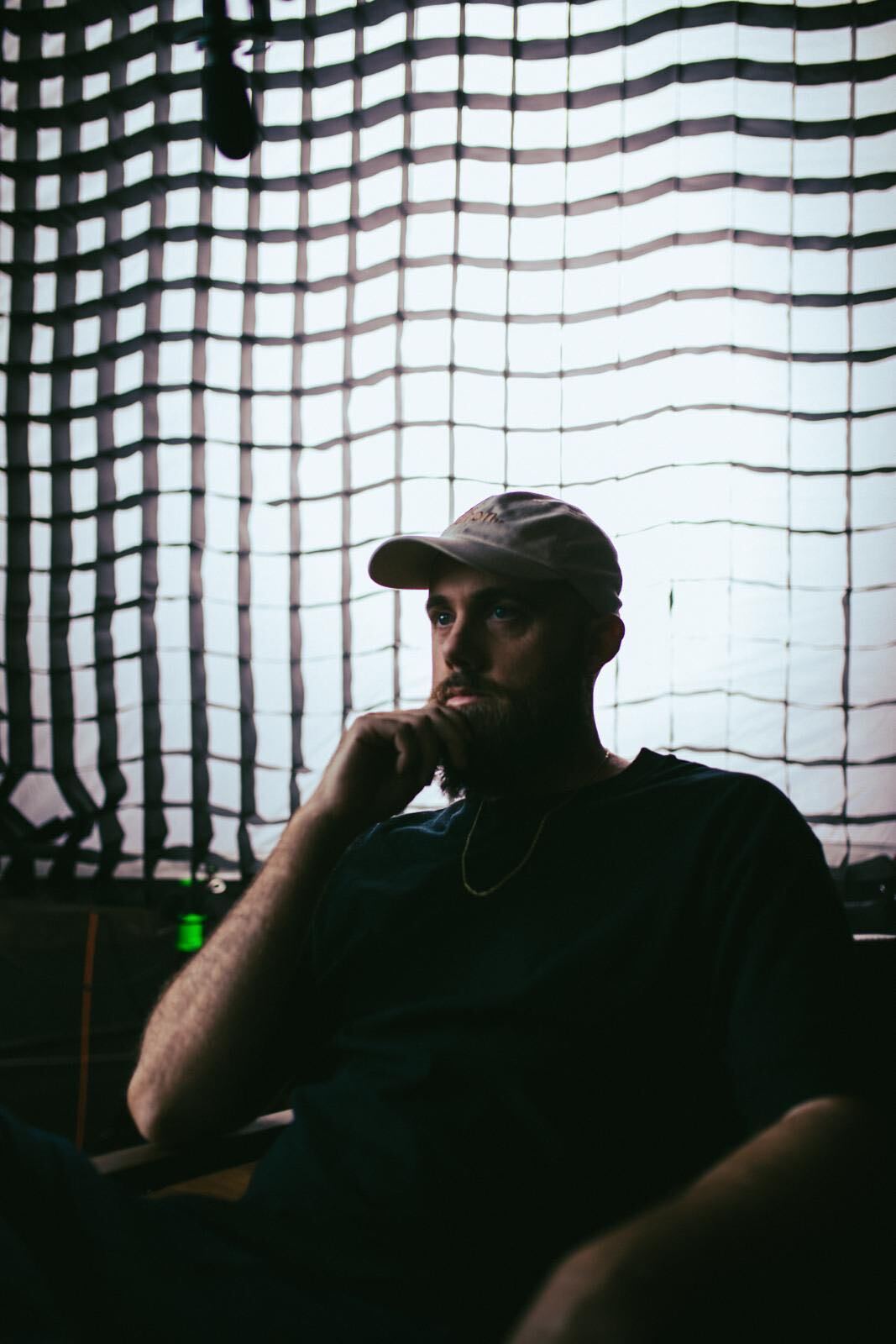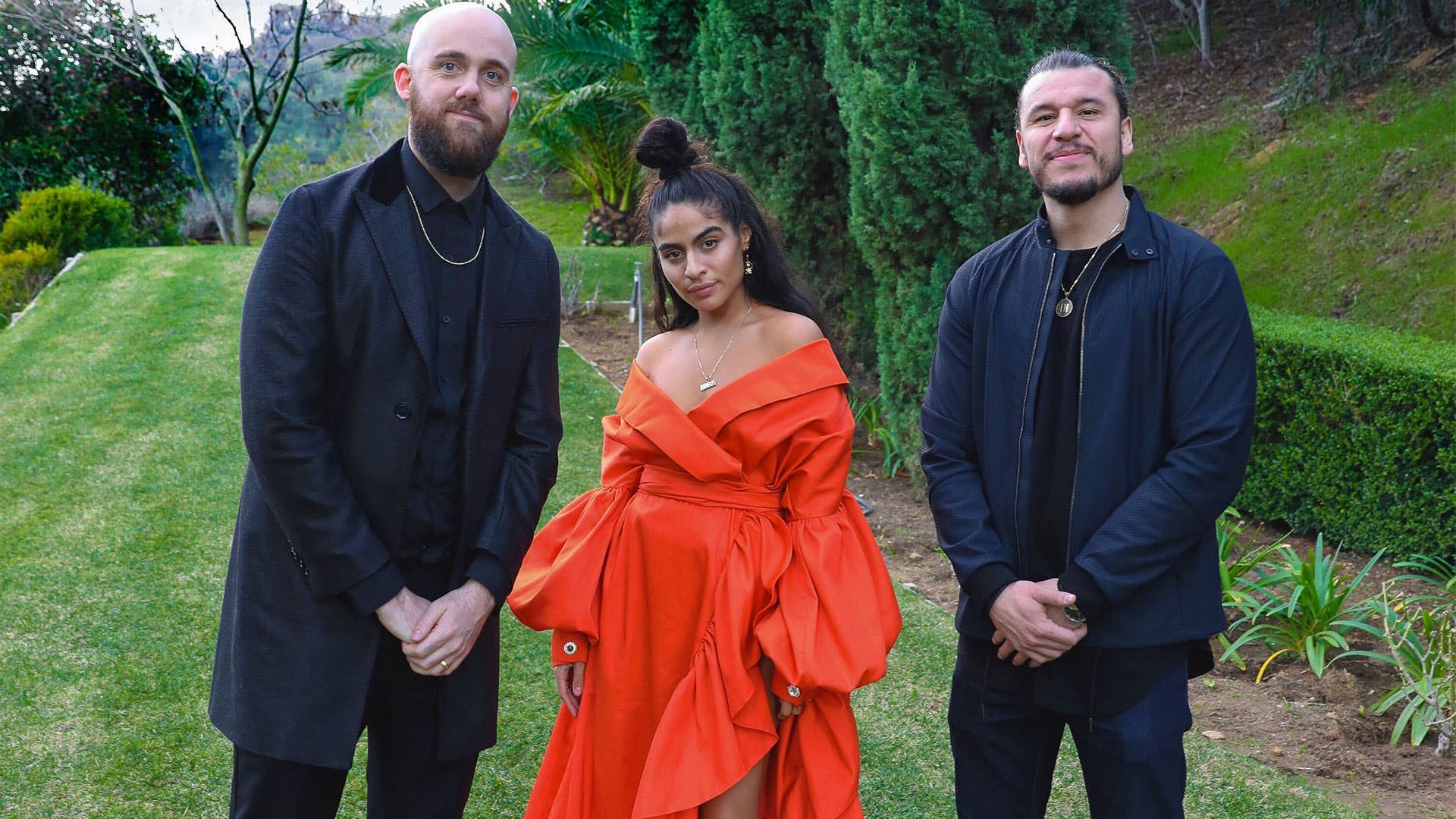
Of all the predictions you had for 2020, we're willing to bet the concert business coming to a complete standstill wasn't one of them. But here we are. As the COVID-19 pandemic continues to impact every aspect of the music industry—as well as all other industries—singers, label execs, and festival organizers alike are left looking for answers on how to move forward.
Mauricio Ruiz knows that feeling. As Jessie Reyez's manager, he felt the effect of coronavirus firsthand as the crisis took hold in North America just as the Toronto singer was set to drop her debut album Before Love Came to Kill Us and embark on a world tour with Billie Eilish. Pivots were needed, and fast. Now, he's looking to share his insights with others—and where else, but on Zoom.
Tonight at 7 p.m., a virtual music panel hosted by 8 Til Faint and curated by Ruiz will unite some of the most important management teams in the Canadian music industry to discuss strategy in the face of adversity. The first in a series, the session will include the managers behind Daniel Caesar, Tory Lanez, PartyNextDoor, Alessia Cara, Murda Beatz, and more, who will share their experiences dealing with the unprecedented state of the business. It's open to the public (join the convo here with ID number 486 649 415).
We caught up with Ruiz and Byron Wilson, who he co-manages Reyez with, to talk about their journey, the effect the COVID-19 crisis has had on them, and how they're adapting to this socially distant new world.
I would love to sit down with both you guys in person, but because of the current situation, we're doing this over the phone. Let's talk about the impact of COVID19. Jessie's tour was affected by this. How is the team holding up?
Byron Wilson: Everybody is holding up, man. I mean, it's obviously a tough time. It is hard not to use this phrase, but it is what it is—there is no other choice than for people to chill out right now. You know, it's not just our industry that was affected. It's literally every single industry in the world being affected by this. But everybody is good. It seems like people are in good spirits, staying in touch with everyone in the band and crew, and everybody seems okay. Everybody's healthy, which is the most important thing.
What are you guys doing to pass the time? You guys getting cabin fever or what?
Mauricio Ruiz: This all happened two, three weeks ago, right? This happened in the middle of us gearing up to release Jessie's debut album Before Love Came To Kill Us, so the last couple of weeks—although clearly a very serious situation across the globe—we've been focused on releasing this album. So all of last week, it was just a grind on release week. We've been pretty focused on that and here we are coming into week two of the album. And we're still not done promoting this album and marketing it.
Yeah, for sure. This must be an interesting time for an artist and management to put out a project. How's it going so far?
Ruiz:The things that we were going to do, like physical promo or being on tour with Billie Eilish or doing Jimmy Fallon, all that stuff obviously we couldn't do. As soon as it happened and everything shut down, we realized how serious it was. We were like, “Okay, we got to double down on digital.” So we've just been focusing all our efforts on digital and the content that we've been able to bank over the last several months prior to releasing the album.
Wilson: Yeah, it was almost an advantage for us to be completely available and present in real time as we were pushing this out. We were never offline, you know what I mean?

Right. This is an interesting time for promo in itself, because the internet is getting flooded with people streaming live performances and taking that approach. How are you guys finding marketing during this time?
Ruiz: We're just really tripling down on digital efforts, because this is new for everybody. It's almost a thing where everybody is trying something new and just going for it. And this was for the first couple of weeks, but I don't think it's sustainable, to be honest. I think you've got to be very creative with it, so we're looking more forthright. You know, Tory [Lanez] is doing an incredible job with “Quarantine Radio,” where he's completely stepping out as a personality now himself. He's getting a whole lot of engagement, so what he's doing is incredibly creative. I think, as well, the give-back component is super important and creative as well. Like what we did with Jessie and this Jameson thing, it's just trying to figure out how to market differently than what everybody else is doing.
For those who don't know, talk a bit about that project with Jameson.
Wilson: Obviously, because the Billie Eilish tour was cancelled, we had no real notice going into that, so we had to send our band and crew home with basically no real notice. So, everyone was out of work for what was one month but is now looking like it's going to be much longer than that. So we came home and once the dust settled around it a little bit, we put our heads together on how we could help and this opportunity came to the table from Jameson, who was also looking to do the same thing with artists and people that were now no longer touring. We actually were able to do a YouTube livestream performance from Jessie's house and the funds we allocated to our band and crew to pay them for the Billie tour, which they weren't able to get. We also were able to shine a little of a spotlight on some other charities that we felt were on the frontlines and have been doing some stuff to help alleviate some of the distress that this crisis has brought to people.
"We're just really tripling down on digital efforts, because this is new for everybody. It's almost a thing where everybody is trying something new and just going for it." - Mauricio Ruiz
Let's do a little backtrack. All three of us, we have a lot of history. We go back quite a bit. Byron, let's start with you, man. Back in 2011, that's when we first met. I went to Vancouver and you actually let me stay with you and SonReal at the crib.
Wilson: [Laughs.] You slept in the basement, bro.
I've seen a lot of management structures and I've been around a lot of music teams but that was one of the most impressive setups I’d witnessed. Everybody under one roof; everyone contributed a skill. Tell me about how your strategy has changed since that time. What have you learned since those days, man?
Wilson: I mean, shit, it's kind of just like same strategy, but more resources and a different time. At that time, we were all at 1851 [the home address]. There was myself in the basement. There was our DJ, Rich-A, upstairs; SonReal was upstairs, and our videographer was upstairs. Our merch guy lived in the basement with me, and we just had a couple of skaters that lived there. It was a very creative environment. With a house that we all paid like $300-a-month rent for, we were all able to just focus on our craft and not worry about having to hold a job just to get by. You know, we would make a thousand bucks in a month and we'd be lit, just to thug it out. You know, figure it out. But that strategy now, it hasn't changed, man. Even on the Jessie front, a lot of those people are involved in her career as well. And we keep that same mentality: Let's get as much as the team in-house as we can and build it out from the ground up.
Ruiz, I've known you since around the same time. I think it was a year after I met Byron; we all went to L.A. and we were down there while SonReal and Rich Kidd were recording their collaboration album, The Closers. At that time, you were shooting music videos. You weren't into management yet. How did that whole management thing happen? Was it being around Byron? Did he spawn an interest in management for you?
Ruiz: Yeah, for sure. I think I was always really interested in music. And, you know, I had Mad Ruk, which is a music video production company. But at the time I was just trying to figure it out with the music videos as well, too, so I was just there as a videographer. I was getting all these marketing packages, because at the time you had to get all this stuff for the MuchFACT grant. So I was looking at everything just taking it all in and understanding it. I was learning the dynamics from the outside, looking into the music business. One of the really good people that I connected with that had their shit together was Byron. I had the video production company and you were managing SonReal. We kind of like ascended at the same time by working together.
Wilson: Yeah, absolutely. I remember one thing about you—even outside of the music video stuff—was that whatever you worked on, there was always a strategy conversation that we had.
Ruiz: Yeah. I remember driving around in a van in Vernon, British Columbia when we're shooting "Hometown" and I remember two things: you and I always discussing strategy about how to release the video, and you always telling me to put my seatbelt on because the fucking bell would keep dinging in the van. [Laughs.] Fast-forward maybe like 2013, my production company is flourishing and his career is moving forward with SonReal. I meet this girl Jessie Reyez on social media and I start to build a relationship with her. And then I tell her about The Remix Project and I become very interested in wanting to help her career. And then we make it official. Then about a year later, I'm like, I need help with it. So, I brought Byron into the fold and I haven't looked back since.

What advice would you give to aspiring managers that are just starting out now?
Ruiz: I would say don't be afraid to ask questions. Doesn't matter how stupid you think they are. Do not be afraid to ask the question. If they don't want to answer it, they're not the person to be speaking to, but always ask the questions. Because if you don't, then you won't know.
Wilson: I would say don't be afraid of the time investment because this isn't something to get into if you're expecting quick results. This is something that takes a long time, it takes investing your own money. It takes crazy sacrifice. You just gotta stick to it. You've got to slug it out. And you take more Ls than you do Ws, you know?
Let's talk about being Canadian at this moment in the industry. It definitely feels like there's a spotlight on Canada. Even looking at the lineup for your panel, there's tons of Canadian talent and Canadian management teams. How do you guys feel as Canadian managers repping Canadian artists? How do you feel that Canada's impacting the music industry?
Ruiz: It's about time. Super proud. It's the best.
Wilson: Yeah, Canada's the best. I mean, even if there is no dope artists, Canada is the best, bro. [Laughs.] It's even better that we have the biggest artists in the world right now. Like Ruiz said, it's about time. We all came up, the three of us, in the Toronto hip-hop scene of the Kardiss and the Choclairs and Saukrates' and K-Os' and all that stuff. I’m sure we could all sit here and talk for hours about how that stuff didn't get its proper shine globally. But without that, it wouldn't have birthed the artists that are now flourishing massively on a global level.
Ruiz: It's crazy because Drake completely broke that door down and he opened it up for all of us. And it took about five or six years for everybody to come in and really infiltrate that, especially in the hip-hop and R&B scene. After Drake, I think there's no argument that there was the Weeknd and XO and they did a phenomenal job as well. And it's like, "Oh, okay, so rap can do this. Oh, R&B can do this and we're from Toronto, Canada." I'm like, "Let's go!" This is wide open now and it gives everybody the belief that you can go on a global level.
Absolutely. Let's let's end it off with this panel. Ruiz, I know you curated this thing. What are you hoping to accomplish with this conversation?
Ruiz: I'd like to turn it into a recurring series. Not just in the music business, because I do have a background in film and I'm very curious to understand what everybody's strategy is in this climate that we're currently in. And I think all of us have questions. And I think it's just very informative for everybody to sit down and have the conversation from the comfort of our own homes. And, you know, we'll figure this out in real-time. I never had this when I was growing up. I think it's super important for a manager that's on the come-up, as well as young artists aspiring to do great things. There's a lot of good people on this [panel] that have had incredible success.

